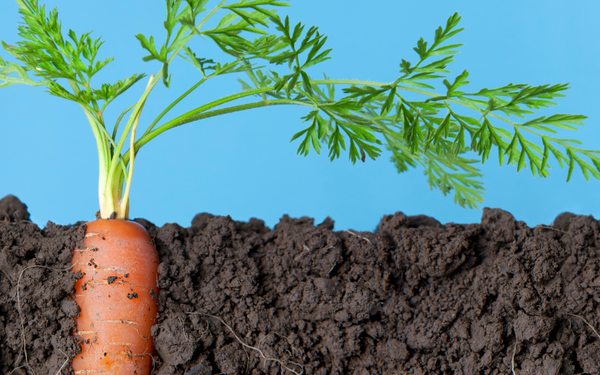The Wild Side
Wild people and plants are becoming more important to many of us. Over the last decade, many of us have become far more aware of the source of the food we consume. And some of us are growing our own food.
And when we do, the first step is to become aware of the quality of the soil we use to plant. When the soil is rich in organic manner, it means that there is underground animal and plant activity, such as earthworms and fungi. There is also a healthy root system. What they don’t teach us when we grow up in larger urban centers is that not all soil is healthy.
And when we buy our greens, for example, from a supermarket, we have no idea what soil they were grown in, even if the label says organic or non-GMO. The same is true at a restaurant and anywhere quite frankly that is not farm-to-table.
Wild or Commercial?
Did you know what produce grown in healthy soil is healthier than offered in commercial supermarkets? Commercial produce loses thirty-percent of its nutrients within three days of harvest. According to the University of California, vegetables lose 15 -55% of vitamin C within a week.
When we grow our own food, the benefits of immediate consumption makes a huge dent on our wellbeing as we get the nutrients immediately. And when it comes to our vegetables, ones that are produced commercially, are harvested as early as possible to maximize profitability! They have less nutrients, bland taste and color.
It’s a one size fits all harvest activity. But with wildly grown vegetables, we can pick the ones ready to harvest and integrate what is ready into our meals. It’s like being in natural flow with nature.
Let’s also remember that when plants are grown with pesticides, they have no way to to produce complex phytochemicals to protect themselves. While wild varieties, protect themselves from pathogens such as bacteria, fungus and insects by producing strong protective compounds.
A number of studies have linked pesticide exposure to health effects, such as respiratory problems, reproductive issues, endocrine system disruption, neurological damage and increased risk of certain cancers
What Are We Consuming?
Eating clean has become somewhat of a fad. So, let’s look at 2023 being the year of understanding and making discerning choices.
When we understand the need to consume a diverse gut bacteria to maintain a healthy body and strong immunity, we understand that we consume many different healthy plants. And isn’t it interesting that each plant has its own ”microbiome”? Medicinal properties in plants are due to the phytochemicals they produce for protection.
When we plant our own garden and know the source of everything—from healthy soil to organic seeds and clean water source—we don’t need labels that tell us what is and isn’t in our food.
As a kid, I had access to some of the freshest produce in the world that was grown naturally and without environmental harm. And when I started moving around the world at a young age, I could sense when a tomato did not taste like a real tomato.
It was why, before being location independent, I played and learned by growing some of my own food. Every tree or bush that was planted was medicinal or bore fruit. I would often bring a share to the local farmer’s market and put it in the donation box so my community would also enjoy in the harvest.
Flowing with Wild Nature
The health benefits of wild plants is in natural flow with Nature. The soil we use also regenerates the Earth and there is a bigger picture to understand and appreciate.
What if we begin to make salads with a minimum of 15-25 diverse wild plants? What would our gut microbiome and immune system tell us about our health then?
Scientists estimate that we can eat as many as 300,000 plant species. And we only consume about 200. Most of what we consume comes from commercial supermarkets.
Wild Living Systems
This is also a reminder of the abundance we have on the planet. With eight billion people, we can begin to understand who is healthy and toxic for our wellbeing. We become conscious of the foundation (soil) of our relationships, nurture (water), weed and harvest the ones who accept us as who we are.
Thích Nhất Hạnh reminds us that “When you plant lettuce, if it does not grow well, you don’t blame the lettuce. You look for reasons it is not doing well. It may need more water, or less sun. You never blame the lettuce.
Yet if we have problems with our friends or family, we blame the other person. But if we know how to take care of them, they will grow well, like the lettuce. Blaming has no positive effect at all, nor does trying to persuade using reason and argument.
That is my experience. No blame, no reasoning, no argument, just understanding. If you understand, and you show that you understand, you can love, and the situation will change”
Our holistic health matters that we live in high awareness and take impeccable care of our mental, emotional, and physical health. Because we are lucky enough to have choices to make. What environment helps you thrive?


